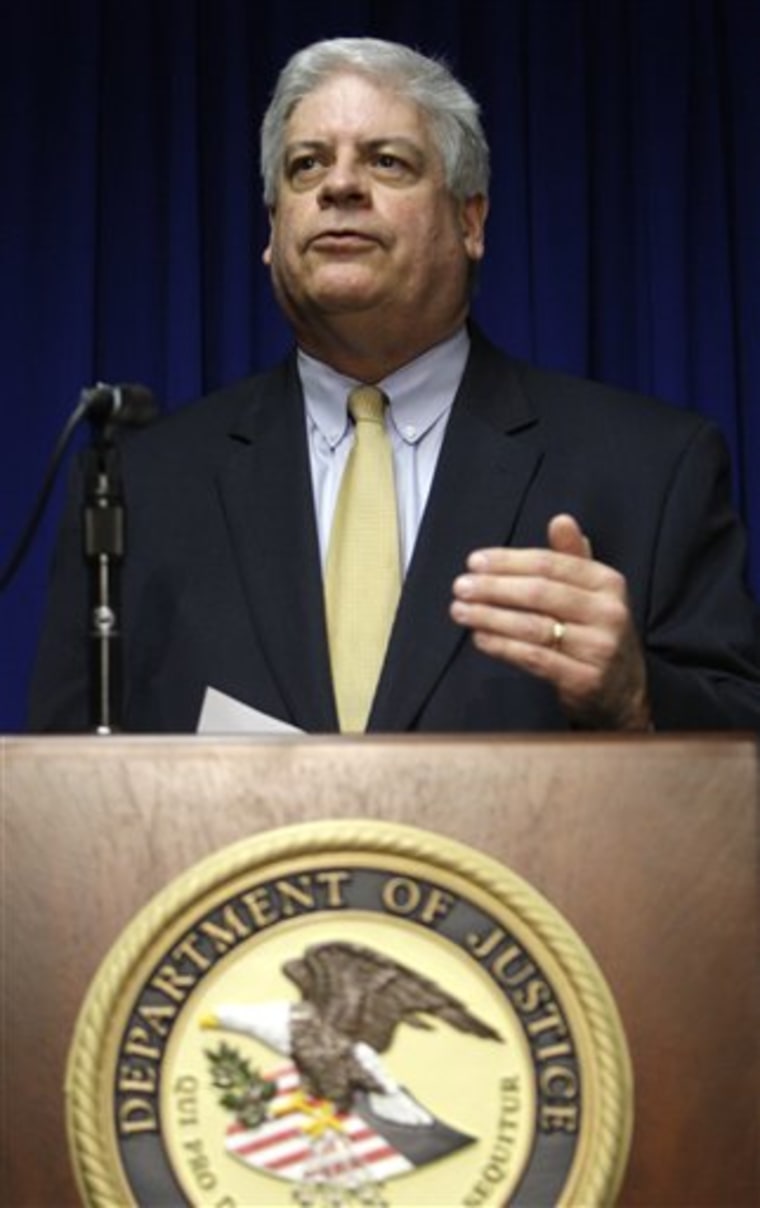A man apparently upset about losing more than $60,000 when the government took over a failed bank has been arrested on charges he mailed threatening letters containing suspicious powder to banks and federal offices, authorities said Tuesday.
Richard Leon Goyette, 47, was arrested at the Albuquerque, N.M., airport Monday, the U.S. Attorney's office in Dallas said. He is charged with a single count of knowingly and intentionally conveying false and misleading information.
"Mr. Goyette's alleged criminal actions caused emergency responders and hazardous response teams immense unnecessary labor and expense, diverted personnel from actual emergencies, completely disrupted business at these financial institutions, and caused untold emotional distress to those who received letters," said James T. Jacks, acting U.S. Attorney for the Northern District of Texas.
Goyette is accused of mailing 65 threatening letters in October to financial institutions and federal regulatory offices in 11 states and the District of Columbia. Sixty-four letters contained an unidentified white powder that later tested harmless. Officials said Tuesday that the powder was calcium carbonate, a major component of blackboard chalk.
The 65th letter was to Chase Bank. It contained no powder but included a threat of the "McVeighing of your corporate headquarters within six months." Timothy McVeigh was executed for the 1995 bombing of a federal building in Oklahoma City that killed 168 people.
The other letters, postmarked Amarillo, included the message "It's payback time" and promised death within 10 days, according to the FBI.
Stock losses a factor?
Goyette waived his right to detention and identification hearings Tuesday during an initial appearance in Albuquerque and will be returned to Texas to face the charges. He did not have an attorney present at the initial appearance.
If convicted, he faces a maximum of five years in prison and a $250,000 fine.
Robert E. Casey Jr., special agent in charge of the Dallas FBI office, said Goyette had an airplane ticket to a domestic destination when federal agents arrested him. Goyette has a criminal background, but Casey declined to say where and when he had been arrested.
In late September, officials said, Goyette sent e-mails to the Office of Thrift Supervision, a federal agency that a day earlier had taken over Washington Mutual Bank, officials said. In one e-mail, Goyette wrote that he lost $63,525 in stock because of the bank's failure.
Goyette e-mailed the same agency three days later, providing his name and his New Mexico post office box mailing address, officials said. Goyette wrote: "This seizure was the final straw and I will now pursue any path to get the return of my investment. Since legal means are apparently useless, I will have to consider any viable method applicable to rightfully reclaim my stolen funds."
Investigators found that someone used computers on college campuses in Albuquerque in late September and early October to look up the addresses of JPMorgan Chase branches and federal agencies that later received threatening letters. JPMorgan Chase & Co. bought Washington Mutual's deposits, branches and loan portfolio from the Federal Deposit Insurance Corp. in September for $1.9 billion.
About three weeks after the e-mails, threatening letters began showing up at the FDIC, the Office of Thrift Supervision and JPMorgan Chase branches, officials said.
"You may lose money in financial markets ... but you don't take your personal agendas to the U.S. mail and create havoc," said Randall C. Till, an inspector with the U.S. Postal Inspection Service in Fort Worth. "We will track you down. We will put you in jail."
Covering tracks
The day before the letters were postmarked from Amarillo, Goyette used a credit card to rent a car in Albuquerque and obtained permission to drive the car in Texas. He returned the car a day later, having put 630 miles on it, or a little more than twice the distance from Albuquerque to Amarillo, officials said.
"Clearly, there was some thought and some planning here," Jacks said. "He attempted to cover his tracks and avoid detection."
Shortly after the bank letters emerged, the New York Times received mail containing a suspicious powder that turned out to be harmless. A law enforcement official said then that the Times letter did not appear to be related to those sent to financial institutions.
Last month, the Wall Street Journal and Harvard Law School received mail, postmarked from Knoxville, Tenn., that contained powder and blank sheets of paper. The New York Police Department said the envelopes might be linked to powder-laced mail sent Dec. 2 to Fox News and to a number of conservative media commentators. That powder was declared harmless.
